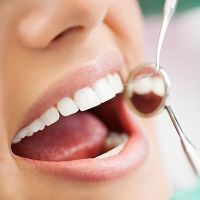Article
Diabetes Patients Have Higher Odds of Dental Loss
Author(s):
People with diabetes are 1.46 times more likely to lose their teeth than healthy patients.

People with diabetes are 1.46 times more likely to lose their teeth than healthy patients.
Diabetes patients are also more likely to lose their teeth earlier in life than people without diabetes of the same age. Furthermore, diabetics suffer more severely and more frequently from periodontal disease and dental caries, which probably increases dental loss.
Healthcare providers have identified poor glycemic control as a factor in microvascular disease (retinopathy, neuropathy, and nephropathy) and macrovascular disease (heart attacks and stroke). Experts have developed specific recommendations for preventing and managing these complications. Nonetheless, healthcare providers and endocrinologists seem to ignore diabetes' effect on oral health.
Researchers from University of Nevada and Emory University Schools of Medicine aimed to understand the factors that contribute to dental loss among diabetics.
They enrolled 202 adult patients who presented with diabetes at a university clinic and who agreed to participate. Participants tended to be overweight with the average BMI 33 kg/m3, and 67% were current or former smokers. The researchers published their results in the June 2016 issue of the Journal of Clinical & Translational Endocrinology.
Investigators asked patients 48 questions addressing background information (gender, age, BMI); diabetes history, control, and complications; dental care history and problems; and osteoporosis. Investigators crosschecked the respondents’ answers with the information in their clinic charts and personally counted respondents’ teeth.
Results showed that 189 of the 202 participants were missing at least one tooth. The researchers noted that previous studies had demonstrated diabetic patients have low awareness of good dental health, and their medical providers have few strategies to improve awareness. Patients with diabetes are less likely to see a dentist than others.
According to the study, patients with diabetes had significantly more incidences of periodontal disease and dental loss than people in the general population.
When the researchers adjusted for a number of factors (diabetes duration, smoking status, number of months since last dental visit, and presence of periodontal disease and other complications), they confirmed that older patients, those who did not floss, and those with diabetic retinopathy had more dental loss than others.
Study authors suggest these are factors endocrinologists should discuss with patients to improve oral health.




